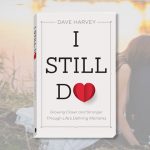In a historical moment when our national mind is disordered by pandemic and politics, it becomes a fragrant bouquet of grace to discover two people whose friendship flourished despite their profound differences.
On September 18th, longtime Supreme Court associate justice Ruth Bader Ginsburg died after a long battle with cancer. She was a fierce champion of liberal positions, many of which I disagreed with. Her staunch defense of abortion-rights and gay marriage are well outside the bounds of Bible acceptability, which makes the story of her friendship with the late Antonin Scalia, a staunch conservative, even more surprising. Yet their storied friendship was so authentic that Scalia’s kids considered Ginsburg, not first and foremost as member of the Supreme Court, but as a dear family friend who spent years enjoying evenings in their home.
In a career of legal rulings, Ginsburg’s friendship with her political opposite will remain one of her greatest opinions.
Unlike family, we choose our friends. Why would two people so different choose to be such close friends? What does that say about how to prioritize and negotiate our differences? And to press the point for church leaders, how can pastors help guide their flocks over through the seismic shifts in the tectonic plates of culture? Here are four things to keep in mind.
Profound differences need not cancel deep friendship.
Many people unconsciously see friendships as echo chambers—a place to hear our own opinions repeated. But scripture says, “Iron sharpens iron, and one man sharpens another” (Prov. 27:17). Here it seems like the point of close relationship is not comfort but sharpening; God’s classroom for personal growth. For growth to come, there must be sparks. For sparks to be present, there must be areas where we see reality differently.
In an age of social media, tolerance shrinks. We draw close to those with whom we most agree and cancel those who counter. But when we take a large view of friendship, disagreement means opportunity, not danger. I’m not implying that we need no doctrinal discernment, denominational creeds, or church requirements that help distinguish members from non-members; not even close. But loving another who doesn’t believe the same way as we do doesn’t immediately default us to being sinful or weak; it can actually make us more like Christ.
The opposite is true as well. Living a life dedicated to the prosecution of differences triggers a fundamentalist freefall. The further we slide towards supposed moral superiority, the closer we step towards the doorway of decadence. In his book The Right Hills to Die On, Gavin Ortlund notes:
All told, there were probably more Anabaptist martyrs in the 16th century than Christian martyrs in the first three centuries of the church, prior to the conversion of Constantine. Let that sink in: more Christians were killed by each other over baptism during the Reformation than were killed by the Roman Empire over their faith in Christ.
The ugly side of history is that some forms of unity cultivate evil. Without friendship and the commitment to love in relationship, communities corrupt and tribalism—an affiliation built upon shared hatred—is conceived. Loyalty to my reality becomes the way we distinguish between friends and enemies. It’s us versus them, but you’re only one of us when you fear what we fear and hate what we hate.
Scalia and Ginsburg chose a different path. Their differences would cultivate, not cancel, their friendship.
Function need not cancel friendship.
Our roles create relational lanes in life. Whether you’re a waiter in Smalltown, USA or in investment banker on Wall Street, proximity and time create the possibilities for friendly connections. But many people build firewalls between function and friendship fearing the chaos that comes when you blend the two. Admittedly, things can get messy—there are places where friendship and function just cannot coexist. But for leaders in the church, the mess it brings is a mess worth making.
Apparently, this is how Ginsburg and Scalia saw their roles. Scalia’s son, Christopher, wrote following Ginsburg’s death:
“Judge Jeffrey Sutton, one of my father’s former clerks, tells a story about visiting my father at the Supreme Court on what happened to be Justice Ginsburg’s birthday. My dad had bought his old friend two dozen roses for the occasion, and Judge Sutton started teasing him, joking that there was no point to a gift like that when Justice Ginsburg had never sided with him in an important 5-4 case. My father replied, ‘Some things are more important than votes.’”
Ponder that final line again. To Scalia, his friendship with Ginsburg had more value than the differences they encountered. Jesus, too, rolled this way. We tend to forget that among Jesus’ disciples were Simon, a zealot who longed for freedom from Roman occupation and Matthew, a tax-collector who collaborated with the occupiers. But Jesus connected with all of them and eventually said, “No longer do I call you servants, for the servant does not know what his master is doing; but I have called you friends” (John 15:15). The differences, dissent, forthcoming denials, and even eventual defections did not prevent Jesus from calling this group his friends. Scalia’s words simply echoed the sentiment of our Savior: Some things were more important than votes.
In his book, Second Mountain, David Brooks cites the words of George Eliot,
“What greater thing is there for two human souls,” George Eliot wrote in Adam Bede, “than to feel that they are joined for life—to strengthen each other in all labor, to rest on each other in all sorrow, to minister to each other in all pain, to be one with each other in silent unspeakable memories at the moment of last parting?” (p. 139)
Differences in Friendship Deepen Learning
Scalia was a Christian; Ginsburg was Jewish. Both had tightly-held and opposing political positions, some on polarizing issues. Each could easily have virtue-signaled their political tribes by refusing friendship with the other. Or, each could have, asserting moral reasoning, refused to help the other. Instead, Scalia and Ginsburg confounded everyone. John the Apostle wrote, “Greater love has no one than this, that someone lay down his life for his friends” (15:13). While the two Supremes never had to die one for the other, Christ’s substitutionary death for us empowers us to walk in his path by forming uncommon friendships.
Ginsburg said of Scalia, “When we disagreed, my final opinion was always clearer and more convincing than my initial circulation. Justice Scalia homed in on all the soft spots, energizing me to strengthen my presentation.” It was their differences that made their strengths stronger, but they had to be willing to use those strengths to help each other. Perhaps it was this “iron sharpening iron” that led to Ginsburg becoming known as a “great dissenter.”
As scripture says, “Faithful are the wounds of a friend; profuse are the kisses of an enemy” (Proverbs 27:6). In friendships, wounds are redemptive because words have been delivered through love. Rather than overgeneralizing their differences or playing the “bigot” card, two people assume the most charitable interpretation of the other’s perspective. This opens up constructive conversation and forces us to consider how we think about others. We discover that engaging with people across the aisle of our differences actually helps us think deeper and reason with greater moral clarity. When we listen well, we learn to represent them with more integrity, bearing as CS Lewis calls it, “the load, or weight, or burden of my neighbor’s glory…a load so heavy that only humility can carry it.”
In this day of shrill voices and friendships under attack, may God help us bear our neighbors’ glory with humility, while also cultivating a depth of friendship that politics cannot divide.








